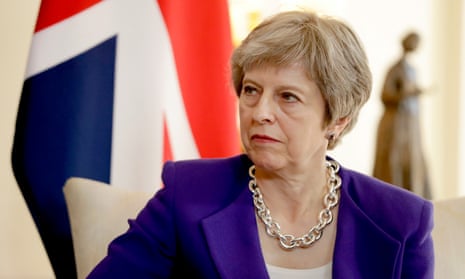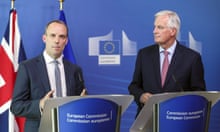Britain’s Brexit argument began life as a dispute between remaining in the European Union and leaving it. After the vote to leave in 2016, that original dispute has gradually been overlaid by the battle between a hard and soft Brexit. The House of Lords debates on the EU withdrawal bill, which have significantly softened the bill, and which come to an end on Wednesday, can best be understood in that hard/soft context. When the bill returns to the Commons (Conservative factions are still squabbling over the terms) the arguments will continue along this same hard/soft axis.
However, hard/soft is not the only axis. In the devolved nations there is a different issue. This asks which should have the final word on Brexit: Westminster or the devolved governments – and in what combination? The answers differ in each devolved country. Though Northern Ireland voted to remain in the EU, its unionist leaders have backed Theresa May for a hard Brexit. After initial objections to Mrs May’s centralist approach, the Welsh government won concessions that were reflected in a government climbdown; it has now struck a deal. The Scots, however, said those were insufficient, so dispute still rages unresolved there. On Tuesday the Scottish parliament voted overwhelmingly to reject the Brexit bill altogether, with the Conservatives dissenting.
This issue typically gets too little attention in England. Even a lot of Scots are relatively unmoved by what can be a dry dispute. Yet the argument ought to matter to all who care about the functioning of the UK. At stake are essential issues about the working of a devolved state, or even in time a federal one. The question of who decides about issues that were previously EU competences – such as GM crops, fishing quotas, state aid to industries, data protection, energy labelling and internet security – matters. So, though, do the mechanisms for resolving disputes and striking compromises with which all can live. The UK is not so practised at that. This summer the UK supreme court is likely to decide some rules.
Both sides in the Scottish divide have arguments that should be respected. The SNP government leads a country that voted strongly to remain. It is right to fight its pro-European corner. But Westminster is also right to be concerned about protecting the UK single market from too much internal protectionism. The Brexit outcome must be harmonious with the devolution settlement, and not disruptive to either devolution or to the single market within the UK.
Almost inevitably, these arguments are saturated with party politics. The SNP wants a confrontation that puts Scottish separatism back on the agenda. Labour and the Lib Dems, who both backed the SNP on Tuesday, want to compromise, but cannot risk being manoeuvred into alliance with the Tories. Ultimately, the current row reflects the SNP’s separatist yearnings, Mrs May’s fear of concessions that would split her party, and the other parties’ fear of being squeezed. In the short term, however, give and take will be needed. In the long term, Britain needs a devolved politics which, as in countries like Germany and Canada, allows standoffs of this kind to be resolved by rules of law as well as by raw politics.









